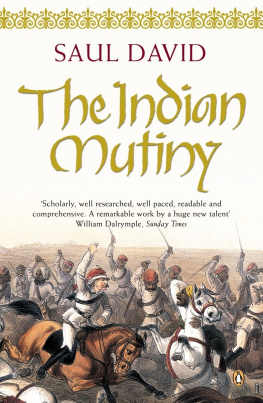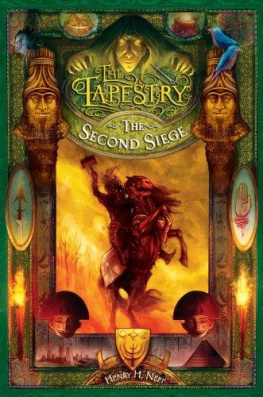Charles John Griffiths - 7A Narrative of the Siege of Delhi: With An Account Of The Mutiny At Ferozepore In 1857
Here you can read online Charles John Griffiths - 7A Narrative of the Siege of Delhi: With An Account Of The Mutiny At Ferozepore In 1857 full text of the book (entire story) in english for free. Download pdf and epub, get meaning, cover and reviews about this ebook. year: 2007, genre: Non-fiction. Description of the work, (preface) as well as reviews are available. Best literature library LitArk.com created for fans of good reading and offers a wide selection of genres:
Romance novel
Science fiction
Adventure
Detective
Science
History
Home and family
Prose
Art
Politics
Computer
Non-fiction
Religion
Business
Children
Humor
Choose a favorite category and find really read worthwhile books. Enjoy immersion in the world of imagination, feel the emotions of the characters or learn something new for yourself, make an fascinating discovery.

- Book:7A Narrative of the Siege of Delhi: With An Account Of The Mutiny At Ferozepore In 1857
- Author:
- Genre:
- Year:2007
- Rating:4 / 5
- Favourites:Add to favourites
- Your mark:
- 80
- 1
- 2
- 3
- 4
- 5
7A Narrative of the Siege of Delhi: With An Account Of The Mutiny At Ferozepore In 1857: summary, description and annotation
We offer to read an annotation, description, summary or preface (depends on what the author of the book "7A Narrative of the Siege of Delhi: With An Account Of The Mutiny At Ferozepore In 1857" wrote himself). If you haven't found the necessary information about the book — write in the comments, we will try to find it.
7A Narrative of the Siege of Delhi: With An Account Of The Mutiny At Ferozepore In 1857 — read online for free the complete book (whole text) full work
Below is the text of the book, divided by pages. System saving the place of the last page read, allows you to conveniently read the book "7A Narrative of the Siege of Delhi: With An Account Of The Mutiny At Ferozepore In 1857" online for free, without having to search again every time where you left off. Put a bookmark, and you can go to the page where you finished reading at any time.
Font size:
Interval:
Bookmark:
OCCUPATION OF THE CITY CHAPTER VI. THE RICHES OF DELHI REMINISCENCES OF THE SIEGE OF DELHI, 1857 CHAPTER I. FEROZEPORE CHAPTER II. ON THE MARCH CHAPTER III. BEFORE DELHI CHAPTER IV. CAPTURE OF THE CITY CHAPTER V.
OCCUPATION OF THE CITY CHAPTER VI. THE RICHES OF DELHI INDEX. A Narrative of the Siege of Delhi With An Account of the Mutiny at Ferozepore In 1857 A NARRATIVE OF THE SIEGE OF DELHI WITH AN ACCOUNT OF THE MUTINY AT FEROZEPORE IN 1857 BY CHARLES JOHN GRIFFITHS LATE CAPTAIN 61ST REGIMENT EDITED BY HENRY JOHN YONGE LATE CAPTAIN 61ST REGIMENT WITH PLANS AND ILLUSTRATIONS LONDON JOHN MURRAY, ALBEMARLE STREET, W. 1910 INTRODUCTION. The ever memorable period in the history of our Eastern Empire known as the Great Indian Rebellion or Mutiny of the Bengal army was an epoch fraught with the most momentous consequences, and one which resulted in covering with undying fame those who bore part in its suppression. The passions aroused during the struggle, the fierce hate animating the breasts of the combatants, the deadly incidents of the strife, which without intermission lasted for nearly two years, and deluged with blood the plains and cities of Hindostan, have scarcely a parallel in history.
On the one side religious fanaticism, when Hindoo and Mohammedan, restraining the bitter animosity of their rival creeds, united together in the attempt to drive out of their common country that race which for one hundred years had dominated and held the overlordship of the greater portion of India. On the other side, a small band of Englishmen, a few thousand white men among millions of Asiatics, stood shoulder to shoulder, calm, fearless, determined, ready to brave the onslaught of their enemies, to maintain with undiminished lustre the proud deeds of their ancestors, and to a man resolved to conquer or to die. Who can recount the numberless acts of heroism, the hairbreadth escapes, the anxious days and nights passed by our gallant countrymen, who, few in number, and isolated from their comrades, stood at bay in different parts of the land surrounded by hundreds of pitiless miscreants, tigers in human shape thirsting for their blood? And can pen describe the nameless horrors of the timegently nurtured ladies outraged and slain before the eyes of their husbands, children and helpless infants slaughtereda very Golgotha of butchery, as all know who have read of the Well of Cawnpore? The first months of the rebellion were a fight for dear life, a constant struggle to avert entire annihilation, for to all who were there it seemed as though no power on earth could save them. But Providence willed it otherwise, and after the full extent of the danger was realized, gloomy forebodings gave way to stern endeavours. Men arose, great in council and in the field, statesmen and warriorsLawrence, Montgomery, Nicholson, Hodson, and many others. The crisis brought to the front numbers of daring spirits, full of energy and resource, of indomitable resolution and courage, men who from the beginning saw the magnitude of the task set before them, and with calm judgment faced the inevitable.
These were they who saved our Indian Empire, and who, by the direction of their great organized armies, brought those who but a few years before had been our mortal enemies to fight cheerfully on our side, and, carrying to a successful termination the leaguer of Delhi, stemmed the tide of the rebellion, and broke the backbone of the Mutiny. The interest excited amongst all classes of our countrymen by the events which happened during the momentous crisis of 1857 in India can scarcely be appreciated by the present generation. So many years have elapsed that all those who held high commands or directed the councils of the Government have long since died, and the young participants in the contest who survived its toils and dangers are all now past middle age. But the oft-told tale will still bear repetition, and the recital of the achievements of Englishmen during the great Indian rebellion will fill the hearts of their descendants for all time with pride, and incite them to emulate their actions. In the hour of danger the heart of the nation is stirred to its profoundest depths, the national honour is at stake, and that heritage bequeathed to us by our ancestors must at all hazards be preserved. Thus it happened in 1857, and the result is well known.
So it may again occur, and with confidence it may be predicted that, as of yore, Britain's sons will not be found wanting in the hour of trial, that, keeping well in mind the glorious traditions of their race, they will maintain unsullied the reputation of their forefathers, and add to the renown of that Empire on which the sun never sets. It is unnecessary, in this place, to enter into the causes which led to the mutiny of the Bengal army. These can be read and studied in the graphic pages of Kaye and Malleson. My intention is to give, as far as in me lies, a truthful account of the events in which I personally bore part, and which came under my own immediate observation. CONTENTS CHAPTER I. FEROZEPORE May 10 to June 13 Outbreak at MeerutNeglect of arsenalsH.M.'s 61st Regiment Characteristics of the British troops in IndiaOutbreak unexpectedFirst indication of disaffectionNews of the Mutiny at MeerutSteps taken at FerozeporeWives and families moved to the barracksA party of the 61st Regiment sent into the fortProceedings within the fort45th Regiment of Native Infantry tries to take the fortIt is repulsedCriticism of the Brigadier's conductHis want of initiativeThe cantonment firedThe damage doneBells of arms blown upThe 61st dismissed to barracksA patrol orderedState of the cantonmentAction of the mutineersOfficers quartered in the barracksGrenadiers again on special dutyIndifference displayed by the BrigadierMeasures adopted for the safety of the cantonmentSearch for mess propertyParsimony of the Government Anxiety in the PunjabLoyalty of the SikhsSir John Lawrence's appeal to themTheir characteristicsSpread of the MutinyReaction at Ferozepore Night-attacksOne in particularTrial of prisonersSentencesExecutions CHAPTER II.
ON THE MARCH June 13 to July 1 A wing of the 61st ordered to DelhiThe five companies selectedReadiness displayed by the regimentOn the marchCholera appearsI visit an old friendBadli-ki-SeraiNews from DelhiEntry into camp CHAPTER III. BEFORE DELHI July 1 to September 7 A view of DelhiVicissitudes of the cityIts defencesdefencesThe ridgePosition of our campOur positionThe GoorkhasCholera raging Heat and fliesExecutionsThe Metcalfe picketsA sortie expected expectedHodsonBombardment of Metcalfe picketEnemy reported moving on AliporeA force sent after themThe action describedForces complimented by Sir Henry BarnardHis deathHis servicesOur meagre armamentScarcity of ammunitionAmusing incidentThe Metcalfe houseOur bugle-calls in use by the enemyA sortieRuse by the enemy's cavalryGallant conduct of Lieutenant Hills and Major Tombs, Bengal ArtilleryExpedition under Brigadier ChamberlainChamberlainGallant conduct of Brigadier Wm. JonesFight at KishenganjMeeting with an old friendA sad storystoryStory of CdA victim of the Meerut massacremassacreStrong feeling of revenge in all ranksA sortieAttack on Sabzi Mandi pickets and right ridgeAn awkward positionHeavy loss of enemyCholera and other sickness prevalentFishingProvisions, etc., much appreciatedGeneral Reed resigns and is succeeded by General WilsonAttack on Sabzi Mandi and Hindoo Rao's repulsedBodies of slain sepoys rifledDifficulty of preventing itGeneral's approval of Colonel Jones's conductThe number of attacks by the enemySortie on our left Repulsed by Brigadier ShowersExpedition under Major CokeAttack on right pickets at sunsetCombat continues all nightEnemy retiresLoss of enemyResult of General Wilson's appointmentWe attempt to destroy the bridge of boatsDemonstration by the enemyPickets on the right harassed Metcalfe pickets shelledBrigadier Showers takes four gunsOur reinforcements arrive under NicholsonHis characterMrs. Seeson comes in from the cityThe enemy fires rocketsHe establishes a battery on the left bank of the riverriverSortieExpedition under NicholsonBattle of NajafgarhElkington mortally woundedGabbett killedkilledDeath of ElkingtonRight pickets harassedAn amusing incidentThe Afghans Alarm in the PunjabBands play in campFatal shell from across the river An uncomfortable bathThe siege-train arrivesOur alliesZeal of the engineersNew batteries established CHAPTER IV. CAPTURE OF THE CITY September 7 to 14 Strength of our forceGeneral Wilson's orderVolunteers for artillery called forAll our batteries open fireNumber of casualties during bombardment Frequent sortiesDeath of Captain Fagan, Bengal ArtilleryBreaches examinedOrders for the assaultDetails of columnsThe assaultBlowing in of Kashmir GateDetails of the operationsCowardly tactics of the enemyGallant conduct of Private Moylan, 61st RegimentGallant conduct of Surgeon Reade, 61st RegimentDoing of Nos. 4 column attacks KishenganjConduct of the Kashmir troopsThey lose their gunsTheir search for themFailure of the attack on KishenganjIntention of the enemyWork of the Cavalry BrigadeSupport by the Guides infantryCasualties on September 14 Bravery of the native troopsTemptations to drinkAll liquor destroyedWe construct more batteriesReported intentions of the GeneralThese overruledThe enemy attacks our advanced postsWe storm the magazine Further advance of Nos. 1 and 2 ColumnsThe 61st move to the church Colonel SkinnerState of the churchUnsuccessful attack on the Burn bastionEclipse of the sunThe Burn bastion capturedThe enemy begin to retireCapture of the Lahore Gate and Garstin bastionThe Palace and Selimgarh takenThe Jama Masjid takenThe 61st move to Ali Khan's houseCasualtiesReflections CHAPTER V. 1 and 2 ColumnsThe 61st move to the church Colonel SkinnerState of the churchUnsuccessful attack on the Burn bastionEclipse of the sunThe Burn bastion capturedThe enemy begin to retireCapture of the Lahore Gate and Garstin bastionThe Palace and Selimgarh takenThe Jama Masjid takenThe 61st move to Ali Khan's houseCasualtiesReflections CHAPTER V.
Font size:
Interval:
Bookmark:
Similar books «7A Narrative of the Siege of Delhi: With An Account Of The Mutiny At Ferozepore In 1857»
Look at similar books to 7A Narrative of the Siege of Delhi: With An Account Of The Mutiny At Ferozepore In 1857. We have selected literature similar in name and meaning in the hope of providing readers with more options to find new, interesting, not yet read works.
Discussion, reviews of the book 7A Narrative of the Siege of Delhi: With An Account Of The Mutiny At Ferozepore In 1857 and just readers' own opinions. Leave your comments, write what you think about the work, its meaning or the main characters. Specify what exactly you liked and what you didn't like, and why you think so.







